Your cart is currently empty!
Where Do We Go From Here?

Living gracefully in any kind of natural environment takes patience and acceptance; the two qualities we Americans have pretty much bred out of ourselves.
John Gierach, Still Life with Brook Trout

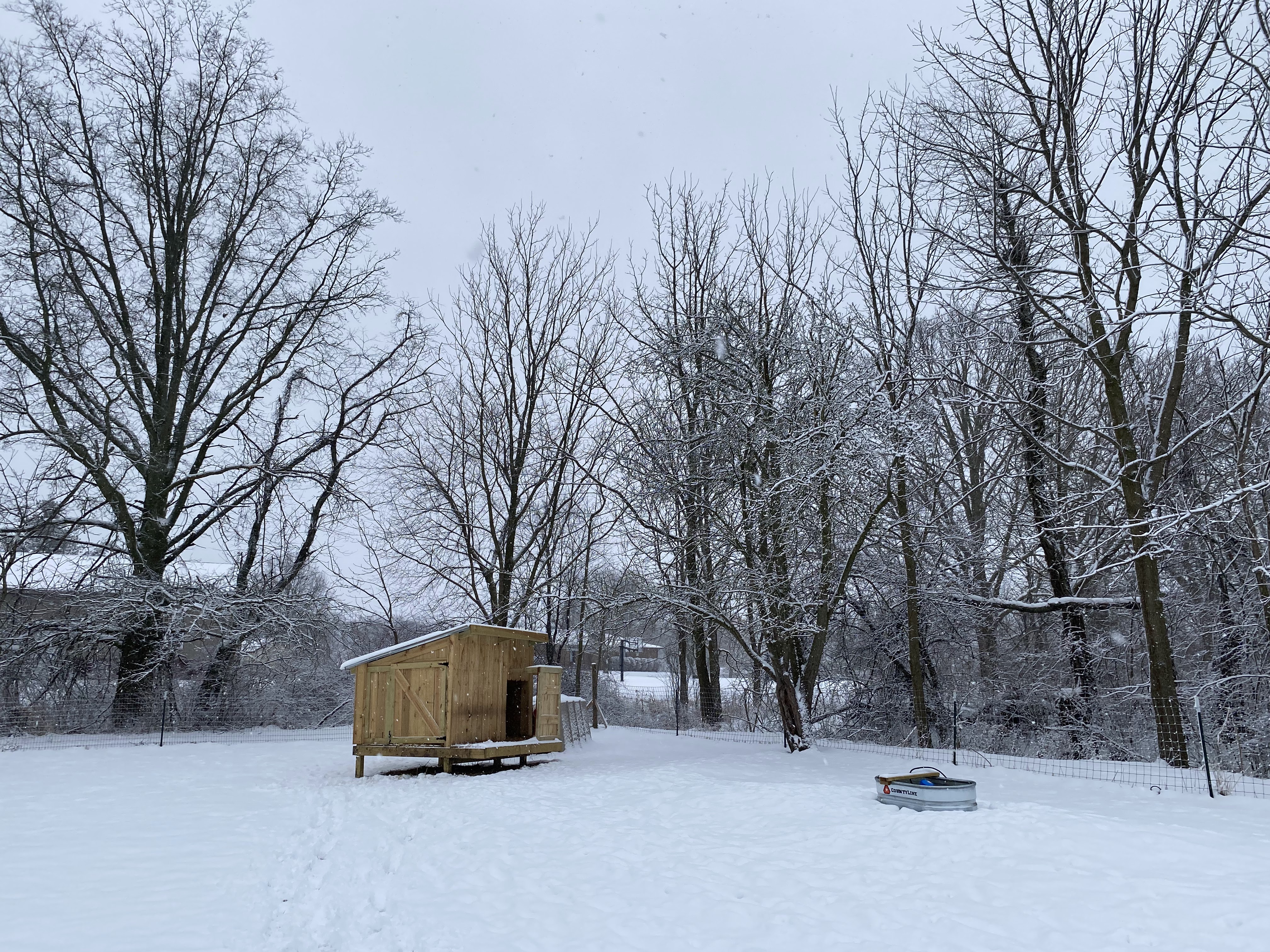


Here in Northeast Ohio the typical January winter weather has returned. Another winter storm, although thankfully much milder than late December’s Elliot, has blanketed the region, and our homestead, in a layer of snow accompanied by seasonally appropriate temperatures.
We find ourselves inside more during these days. Often with more free time spent in front of the computer screen. That opportunity has its ups and downs though.
For those of you familiar with Facebook, you’re probably aware that, from time to time, memories of what you’ve posted in years past will pop up in your timeline. They’re little reminders of what you shared in years past.
Today’s quote was one such memory. John Gierach’s memorable quote was one that I had all but forgotten about. Through Facebook it resurfaced from a book I was reading 12 years ago.
I stared at the quote for a while, contemplating whether or not we had improved any since I first shared these words years before.
Initially I concluded that we as a society are not any better off now than we were back then. I quickly jumped, as is often our case, to the negative and concluded that we were worse off. And with little hope of relief in sight.
And why not? Today is scary.
No one seems to know what direction the economy is going to turn. Are we on the brink of another recession? The world seems once again to be in the throws of economic insecurity. America seems to be holding its breath, and its dollar, waiting to see what spring will bring.
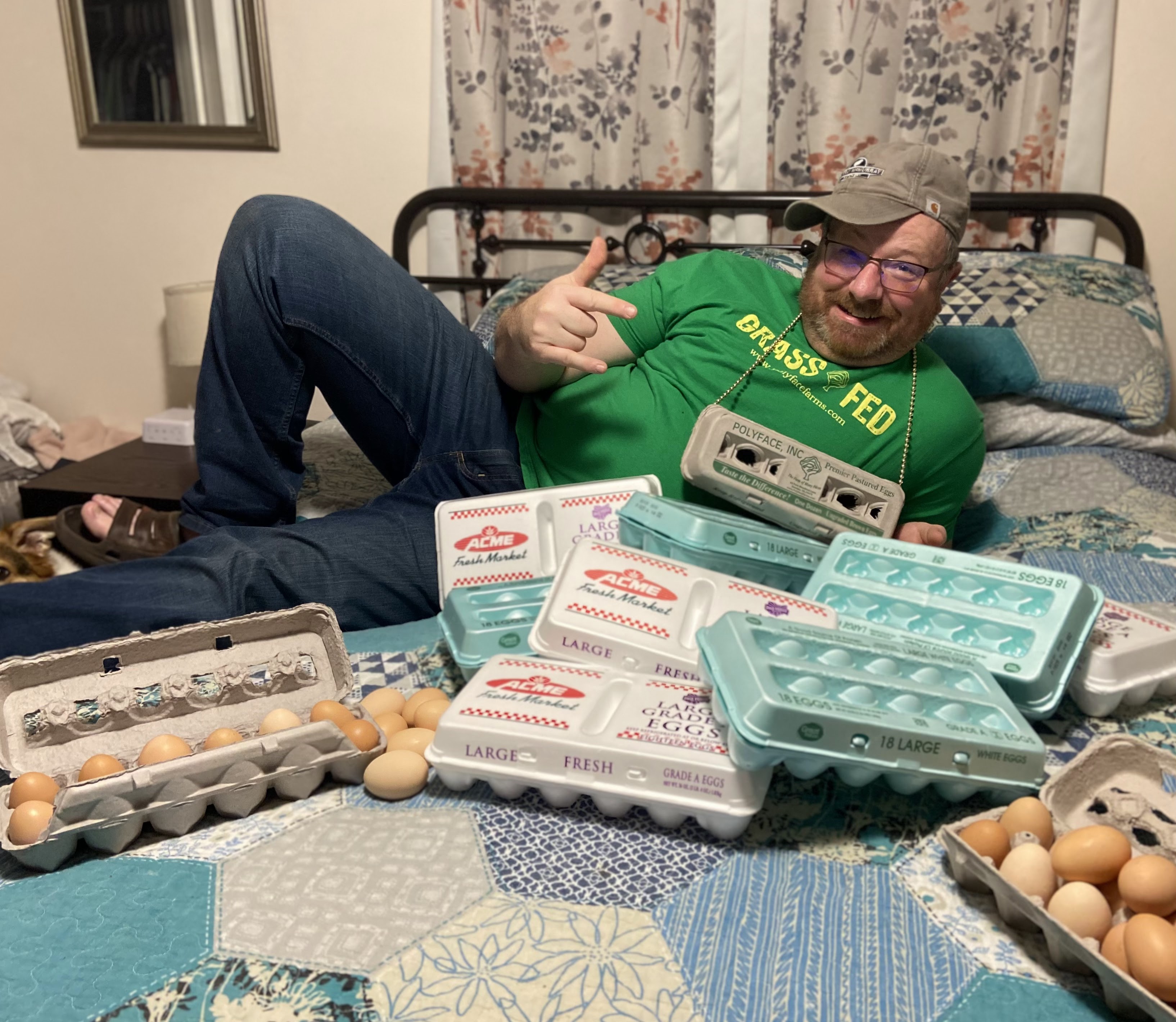
On the up side of things though, the cost of eggs has created a plethora of spectacular memes defining new wealth. As is often the case though, with humor there is always an underpinning air of truth. Grocery costs continue to rise at record rates.
That’s the economy. And then there’s the environment. We’ve known what we need to do since the days of Aldo Leopold and Louis Bromfield. Rachel Carson and Jane Jacobs fought to save us from ourselves. James Howard Kunstler cautioned us about building places not worth caring about; a literal geographies of nowhere. And more recently Richard Louv warned that we were the last children in the woods while Greta Thunberg chastised us for our lack of action. But taking those steps to stop our decline continues to elude mainstream society. We continue to treat the Earth like we have a fallback option. But there is no plan B.
Socially and politically we’re a wreck. All too often we seem to focus more on what makes us different from one another than those things that make us the same. We cannot seem to agree on anything. Be it race… religion… sex… sports… Hell, just about anything trips off a powder keg of emotions anymore. The mainstreem media is all over that, meanwhile Congress is at a standstill over who disagrees with whom more. Corporate greed buys politicians, and votes, as industry lobbyists line the pockets of our so-called elected representatives with money to go against the better interests of the public itself.
So…. yeah. I get a little down sometimes.
Can you blame me though? We’re hard wired toward the negative. Positivity requires conscious thought and action. Negativity comes too easy. Just listen to Joel Salatin talk about “Go Lights” and you’ll see what I mean. We don’t identify as a society with the notion of a go light. But hit one red light on the way to an event and we’ll talk all night about that damned stop light.
It is at times like this I am reminded of another quote. One that brings me back to a better place of mind. This quote is a little older; dating back to the time of Marcus Aurelius.
Because regarding the business of life – and living life with a purpose – Marcus Aurelius tells us to, “Get involved with your own rescue.”
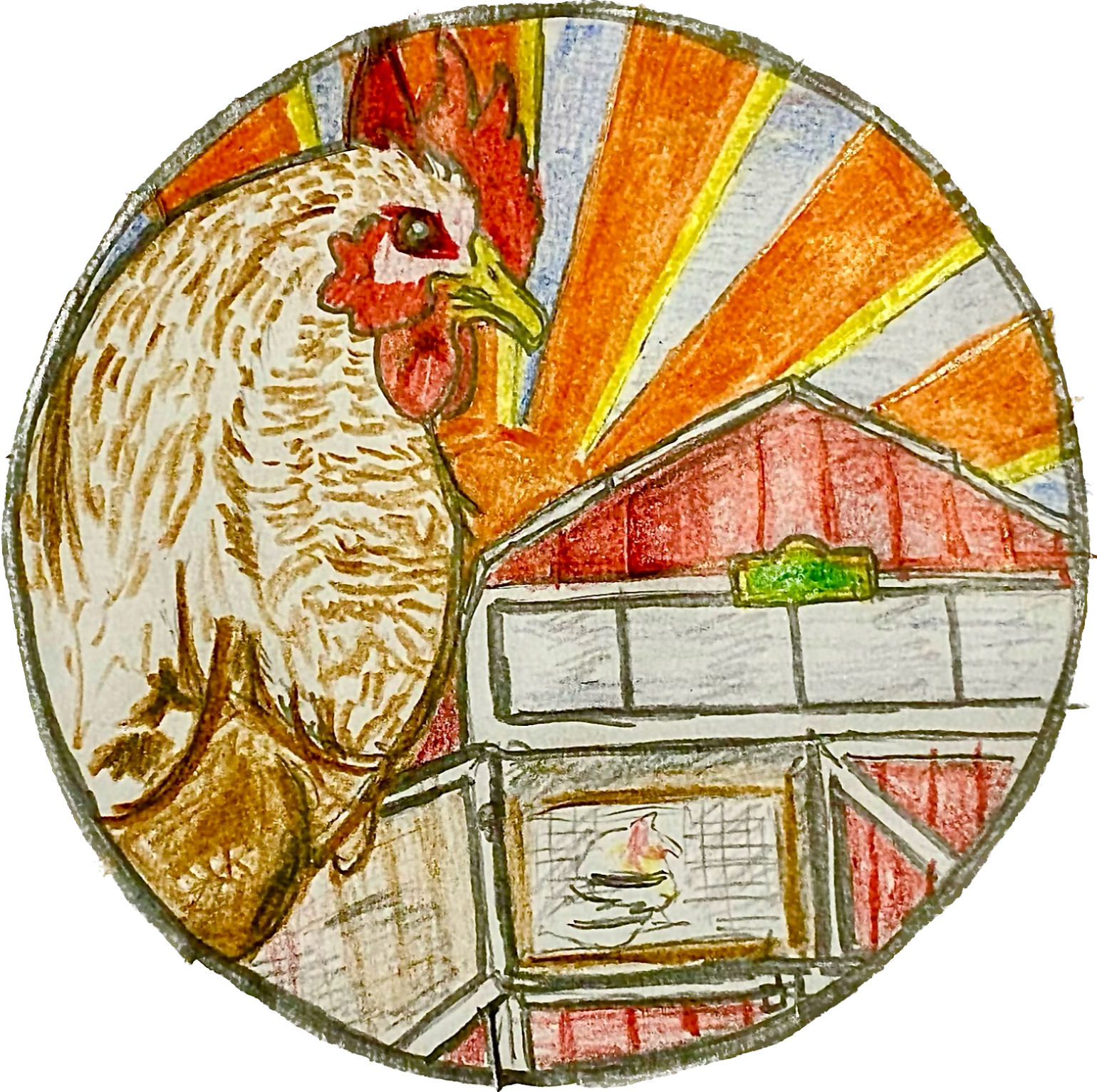
That’s why Christine and I are thankful for the homesteading community. Here on our homestead, and whenever we have the opportunity to gather with other like minded people, we find ourselves among a community that is both patient and accepting. We see the dilemma ever present in the modern world, but instead of letting it get us down we embrace a more natural and deliberate form of living. We are resilient and we recognize the value of our Earth. This is our tribe.
And here we find a whole community dedicated to their own rescue. Inspiration comes readily from the homesteading community. All of us are working towards saving ourselves. Each in our own way. Each of us at our own scale. All of us are active in our own rescue.
So instead of dwelling this week on the things that bring us down, we choose to instead continue to build towards our future. Part of that included the first phase in the redevelopment of one of our flower beds into something that will increase our resiliency at home: a raised bed herb garden.


We have beauty and diversity in the two flower beds just outside our front door. But there is also a lot of redundancy. Christine has wanted an herb garden for a while now; and so I was inspired by the principles of permaculture, something I’ve learned so much more about through this community, to create an herb garden in the space closest to the house.
In permaculture, Zone 1 surrounds your dwelling. This is ideally where we garden and farm. It has a direct link to the activities that take place within the home. As our front door opens off of our kitchen and dining area, an herb garden is an ideal fit for the front bed. It can be simple and utilitarian, but I’m sure ours will be both functional and aesthetically pleasing so as to offset the loss of a showy floral bed.
It would have been difficult to tear out the bed when it was in full bloom last summer into fall. Not only because of the dense vegetation present, but also because of a hesitancy to destroy the beauty of the bed in bloom. But on a warmer than average January day, the bed’s visual appeal was less than epic.

So in I waded wearing muck boots and with shovel in hand.
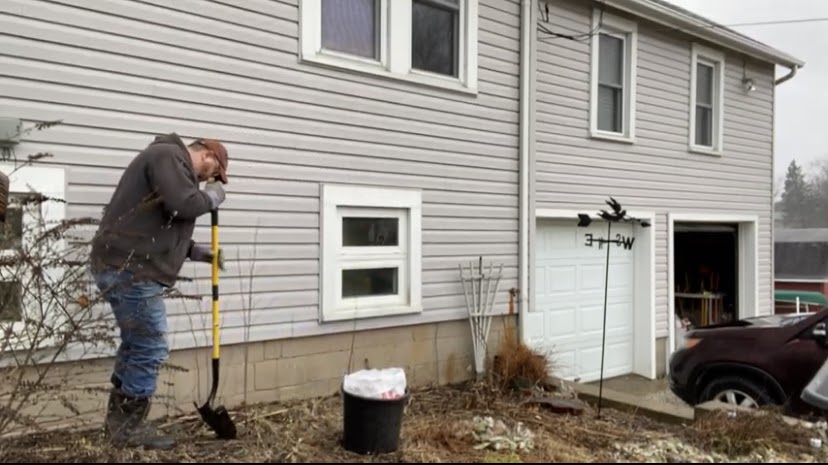
It took a couple hours of effort to complete the first phase of this bed’s transformation. Soon after starting I realized that the slope of the beds was all wrong and that they actually drained water towards the foundation of our home as opposed to away from it. This likely accounts for the occasional moisture we see in the basement on western wall. Hopefully the regrading of this wall, along with other drainage improvements the herb bed will bring, will solve the foundation moisture issues going forward.

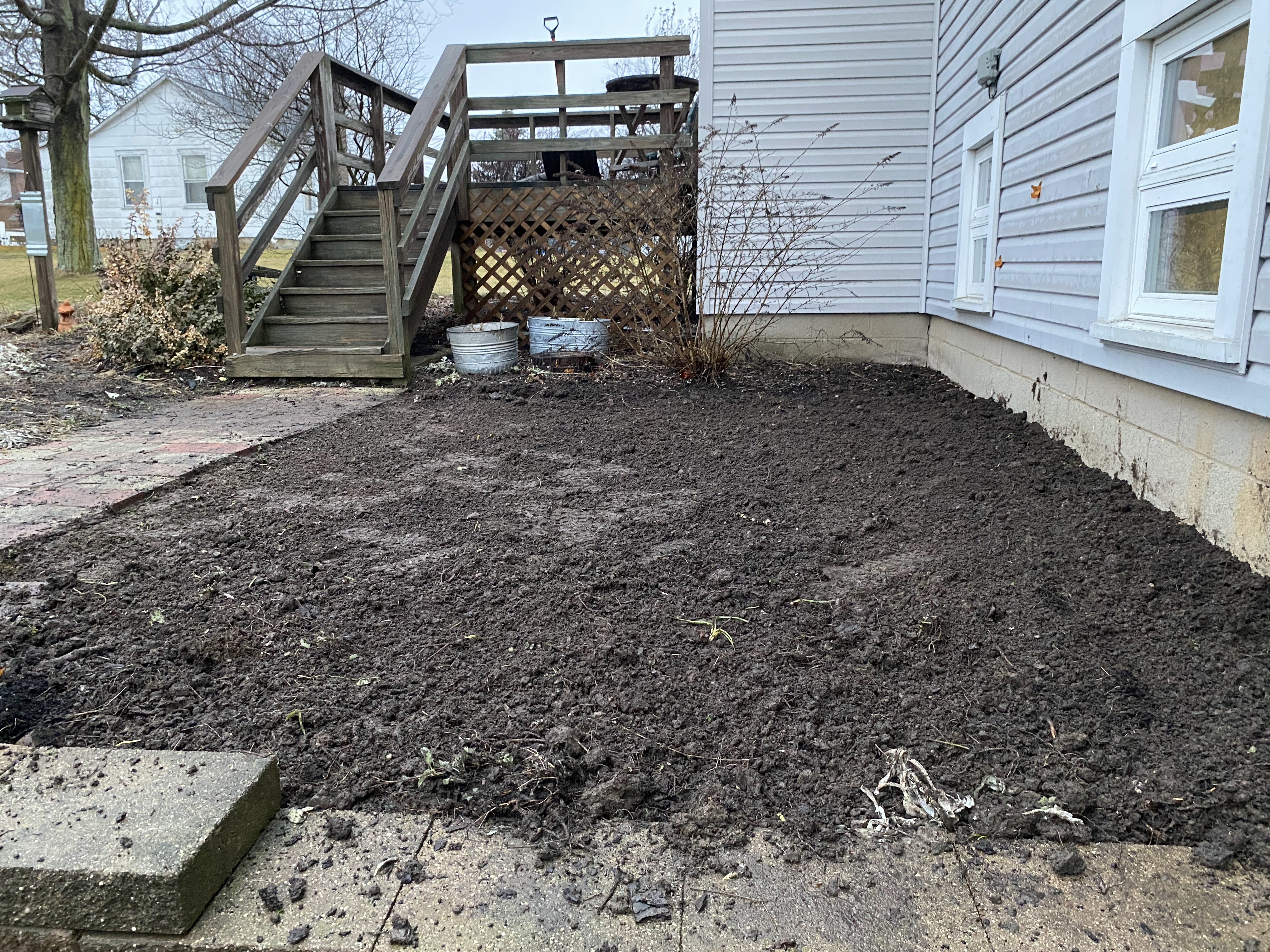
You can see that afterwards the bed is completely cleared of vegetation and regraded to allow water to flow away from the foundation. If you’d like to see more of the process, including what we saved from the bed, you can see video of phase one of the project on our YouTube channel here.
Phase two of the project will be installing a decorative rock wall along the walkway, creating a river rock substrate pad for the actual garden itself, and installing the raised beds that will hold our herbs. We’ll be using galvanized troughs for our raised beds which will be full of rich soil amended heavily from our own compost
Phase three will be planting our selected herbs in the beds, along with a host of flowering plants around the periphery of the garden to give it more visual appeal.
But seeing as Ohio winter weather has reared its bitter cold head once again, the next phases will need to wait for some better weather. As always there is no shortage of tasks, chores, and projects to complete on the homestead. We stay busy no matter what the weather.
Homesteading requires patience and acceptance. Thriving in the homestead requires being active in your own rescue.
Share with us how you’re coping with winter where you are. We’d love to see what you’re up to. We love to watch you grow!

One response to “Where Do We Go From Here?”
The egg photo is hilarious lol I agree with you though on the whole chaotic mess our nation is in.. It’s exhausting, overwhelming and disheartening, honestly. In times like these, community is so important; it’s just getting communities together that’s the challenge. Good luck on your projects!